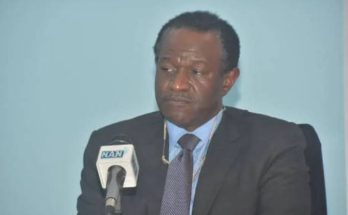Prof Femi Mimiko is of the Obafemi Awolowo University Ile Ife but currently the Vice Chancellor of Adekunle Ajasin University, Ondo State. He is also a delegate at the National Conference where he plays a prominent role in the Political Party and Electoral Committee. In this interview with EMEKA NZE, he takes a look at the various challenges confronting university education in Nigeria and proffers palpable solutions that can help eradicate incessant strikes and other challenges in the system. Excerpts:
Can you examine the challenges of the university system within the Nigerian context; especially the incessant strike actions embarked upon by university lecturers which often cripple academic activities on the campuses?
Well, I think basically there is the need for a higher level of interaction amongst the government agencies that are saddled with the responsibility of administering education, especially higher education and the workers of the institutions, because it’s not possible to have a time when there would not be issues, conflicting positions. I think what is important is to have the system in place that would be robust enough to at all times take up all of those issues that are conflictual or potentially conflictual in nature and find a way to resolve them before they get out of hand.
That’s the broad template I think we need to look at. But more specifically one issue that has repeatedly caused these conflictual situations that has manifested into incessant strike actions is generally the under-resourced nature of the institutions. I’m a bit particular about the higher institutions now. Several of the higher institutions have been under resourced in terms of funding, in terms of capacity and therefore there must be another predictable manner of funding that will enable the administrators in the universities system in particular and other tertiary institutions in general to be able to plan and embark on realistic projections and bring about the development of this institutions without which a country cannot develop.
We are talking about the bedrock of production of human capacity of the country, it is important that we do this. I think we also have to focus on the work ethics in the higher institutions especially on the part of we academics , I think there is a lot of room for improvement in terms of the way we go about doing our work , in terms of the attention we put into it and all of that . I think if we take all of these together in something like a basket, we may be able to put an end to this culture of strike actions and go forward.
Just before we shift from the university systems, in terms of internally generated revenues (IGR), cant the universities generate monies on their own and again through consultancy rather than always running cap in hand to government?
There is no question about the fact that most higher institutions in Nigeria today make a lot of effort to generate funds, a lot of resources, they generate funds independent of government. At any event you have no choice as an administrator of the system to do that. If the higher institutions were not generating funds on their own many of them probably would have closed down a long time ago.
But we must also recognize that the primary purpose of a university, for instance, is not to do business. A university is supposed to be a citadel, an academy for the generation and dissemination of knowledge. Even in universities where we have fund generating propensity, what we do is to set up independent agencies where you deploy professional entrepreneurs to man it on their behalf. The question of asking professors to go and run gas stations or manage bakeries and all of that, constitutes a fundamental injury to the system because a professor that should be in his laboratory will be running all over and pursuing customers and all of that. But what we do is to ensure we create some form of autonomous agency of the university to do business. The bottom-line, the point I am making is that all the institutions of higher learning that I know in Nigeria today are involved in some fund generating initiatives but then that cannot substitute for public funding, especially because these universities are public institutions .
Do constant strike actions have any direct relationship with the quality of graduates, because we are inundated with stories of poor quality graduates today?
It goes without saying that when you have strike actions, it impacts negatively on the operations of the system. For one, you will not be able to make projections in terms of planning. A practical example is when you try to exchange agreement with fellow universities abroad and you are not in a position to predict when your semester will start and when it will end.
That’s a loud statement on your un-seriousness; no serious university would want to do business in that type of situation. In terms of sending the students at home for weeks, for months without the privilege of the laboratory, the library to use, of course it imparts negatively on the scholarship. You also look at a lot of research going on in the laboratories, some of them they have been on them for months, some for years and then you suddenly have to shut down, you cannot predict resumption and then you have to start all over again.
So, there is no question about the fact that strike action is fundamentally negative and injurious. But one thing I know is that those who go on strike even in the university system is not as if they are oblivious of these realities but at times the argument is that they get to a breaking point, people believe that they have no choice rather than to go on strike. But I can tell you precisely, I don’t know of any academic that is happy being away from work but often times people claim that situations force them to take those courses of action.
Our school curricular seems to have become outdated in our present time. Does it require some modifications to meet up with global realities?
The curriculum or the curricula generally are not outdated. I cannot fathom a situation in which a university or polytechnic will simply leave its curriculum there without updating it. It’s a dynamic thing; it is a dynamic temporary concept. When people talk about something being outdated it’s as if you wrote the curriculum and you just leave it by the shelf. It’s something that you do quite often, in my University for instance, it’s more or less a compulsory thing that an academic must travel abroad ones in a year to interact with colleagues at conferences and so if you are there you go all the way to the United States to attend conferences and you don’t pick anything from there in terms of the currency of your curriculum, it then becomes a problem.
I do not think the question of curriculum being outdated is correct. As a matter of fact in most universities, there’s a certain academic programme committee of senate whose responsibility is to ensure that this programme gets worked upon on regular basis to ensure that you capture best practices to deliver to your customers in this instance, the students.
In many universities, there is seemingly no love lost between the students and the academics. You are a Vice Chancellor, in some instances where there is a faceoff between the students and the lecturers the students alleged that the vice chancellors usually clamps down on them without recourse to investigating the matter, is this the case?
I don’t think the conclusion is correct, even the premise I don’t think is exactly the case. Let’s say there are situations when there are conflicts between lecturers and the students either as individuals or corporately. Every system provides for a platform for resolving this type of problems. As a matter of fact, many of our universities we have some standing institutions that are directed at getting students to come up when they have issues that tend to frustrate them. So when such issues come up and students directs them to the attention of the management, an intervention is quickly made because you and I know that if you allow students of that age in their late teens, early twenties to get frustrated they get bottled up, it’s a little thing that will just trigger and you find them doing all manners of things. That’s why for us, for instance, we encourage students’ unionism. We actively encourage students to go out and participate at the political process, in the governance process of their unions. It’s not just for them a training platform; it also affords us to have an identifiable role route to these students so that you can use that to manage all sorts of conflicts when such arises.
Assuming you are leading the education committee today at the national conference, what agenda would you be pushing?
Well I will be looking at what strategies to put in place to improve the funding situations in the education sector. I will be looking at a whole lot of programmes and activities that will be directed at repositioning the work population of these institutions in terms of their work ethic, in terms of their orientation and all of that. For instance, the truth is that several lecturers today still feel that they are something like the lord of manor; that must ride roughshod over the lives of students whereas it’s not supposed to be so. There are lecturers who believe that who dare you as a student to ask questions or to challenge my thoughts or my positions whereas in more successful jurisdiction, education is more interactive. You assume correctly that your student is coming in with some bright ideas and it is the process of interaction, it’s like the dialectical situation; it is the process of interaction that gives you the higher truth, so you must be willing to listen to students and all of that.
We will be looking for a programme of activity and action that will try to re-orientate the working population in our educational sector in general. I am concerned also about the quality of infrastructure in many of the institutions, especially at the primary school level. What I see as primary schools is for me a loud critique of all of us Nigerians. It raises the question of how serious we are if it is that type of environment that we allow our kids to school in. There’s also the need for us to device a programme of partnership between the higher institutions in particular especially the universities and industries so that there could be synergy between what researches to carry out and what industries need to bring out products for the consumption of the larger population. A lot of things would have been addressed were I a member of the Education Committee at the conference.



